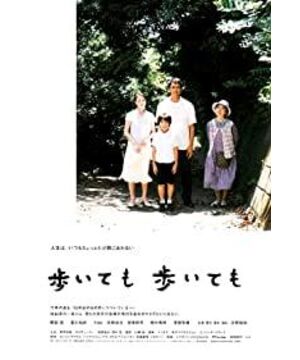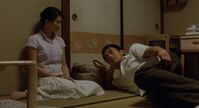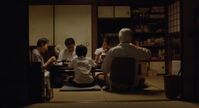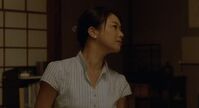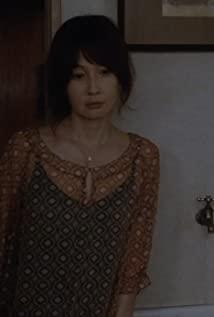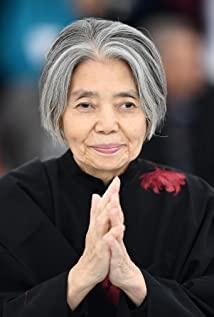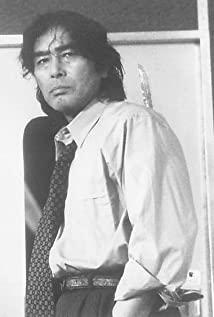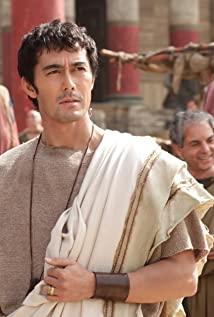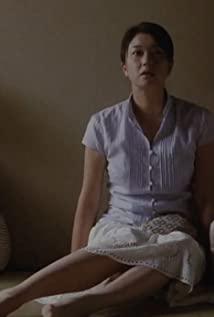Looking at it whole, "Walking Nonstop" and "Deeper than the Sea" are like a pair of twin brothers. Shirin and Hiro Abe also played a pair of mother and son. The latter's roles were both called "Lotus", and they both reunited and spent the night at their mother's house as the main narrative. Going further, there are even many bridges for bathing. But if you taste it carefully, "Deeper Than the Sea" emphasizes the opportunity of that night, and is more straightforward (see "Deeper Than the Sea" for film reviews: what is deeper than the sea is life itself ); and the day and night of "Never Stop" is more like A stone thrown into the lake water not only caused ripples, but also evoked the silt that settled on the bottom of the lake. The core of the film is obviously thicker and deeper.
It is said that the style of Hirokazu Koeda is like Yasujiro Ozu, even though the director himself does not agree with it, but "Never Stop" does have a taste of Ozu, such as family themes, such as the importance of "diet" elements, and even the Taiwan of this film. The translated name ("The Taste of the Yokoyama Family") also draws on Ozu's "The Taste of Autumn Saury", which is unique compared to "Never Stop Walking". However, compared with the larger pattern of the disintegration of Japan's post-war family system that Ozu pointed to in his works, Hirokazu-eda is more pure and delicate. Therefore, rather than saying that this film has the style of Ozu, it is better to say that it has the shadow of Ang Lee's "Diet Men and Women". It is plain, real, gentle, and uses daily food to express the emotions between the two generations of the family.
It is the most prominent feature of Hirokazu Kore-eda's works, perhaps the ordinary but delicate and warm details of life that can be seen everywhere. It is not only the separation of life and death that makes people unforgettable, many moving movies often come from small and inconspicuous life scenes. For example, the wind chimes blown by the wind in the afternoon, the summer ice cream that was bitten off, the large cosmos fields in the evening sunset, and the bubbling sukiyaki pot on the dinner table in the evening. All these pictures of life, although so small, but the more they taste, the more comforting they feel. In "Never Stop," it's the food, the table, and the kitchen.
The beginning of the movie is very well-designed. The screen is all black, but there are washing sound effects in the background, as well as a dialogue about radishes and potatoes. Then the screen turned brighter, and it turned out that the mother and daughter were preparing food for the family gathering in the kitchen. In this film, which is closely related to "eating", "eating" and "hearing" are combined in many places. The crackling sound of fry, the boiling sound of stew, etc. The all-black picture at the beginning of the film, the sound and the tug-of-war between the dialogue, brought a saturated emotion, which made the audience quickly accept these two elements from imagination to seeing.
Most of the plots of this film are carried out in the kitchen and living room (dining room) of Yokoyama's house. The semi-open kitchen and the dining table in the living room form an organic whole. Why are the most mundane things in life, such as food preparation and family meals, displayed in such detail? Because in the Eastern family ethics, the matter of "eating" often has an unspoken symbolic meaning, which is extended to such figurative things as "food", "table" and "kitchen". It doesn't matter what you eat, what matters is the process of preparing the food and eating it. During the preparation of the Yokoyama family's lunch (especially the corn tempura), the mother, daughter and son divided the labor and cooperated, and the procedure was very careful, which dispelled the father's stubbornness not to participate in collective action. When the father smelled the fragrance and joined the tasting, the ceremony with the function of cohesion was not completed until the meal for the family of nine was over.
We know through the advancement of the story that the reunion of the Yokoyama family is for the eldest son Junpei's annual death anniversary, while the corn tempura cooked according to the custom and the experience of Junpei stealing corn told by the mother are related to the memorial activities. Mirror each other, touch the memory of family members through taste and past events. The original intention of the dinner is to cherish the memory of the dead and heal the wounds, but each death day is like a hidden violence, making everyone taste the pain again. The death of the eldest son that year caused untold damage and estrangement to the Hengshan family. Especially for many as the second son, the unexpected death of the eldest brother has unexpectedly transferred the expectation and responsibility of inheriting the family business to himself. Hesitant to choose between inheriting family responsibilities and finding oneself.
"Now that I think about it, "Walking Away" is my tribute to my deceased mother. The reflection on how to accept the fact of my mother's death formed the film." As Hirokazu Kore-eda said, the film was born out of his own personal experience. How he traveled to and from the hospital to take care of his seriously ill mother, how he talked to her until one day she died suddenly. He felt that this relationship should be written down, and he completed the first draft of the script in eight days. Therefore, although the head of the Hengshan family in the film seems to be a father who has practiced medicine for half his life, he is actually the mother who has been a housewife for a lifetime.
If the consultation room of the Hengshan family is the father's position, then the master of the rest of the house seems to be the mother. My mother has never read or gone out to work, but she has a first-class cooking skill and is also the backbone of housework. The traditional Japanese family division of labor determines that mothers/women will inevitably become a bridge connecting family members' emotions through the dietary system. In the film, the mother's sense of sanctity and firmness towards this responsibility is comparable to the father's dedication and pride in the profession of a doctor. She uses every dish she specializes in amplifying the energy of emotion and memory, and affects the hearts of the whole family. This is the powerful power of mother to control food. It's no wonder that the old and child-like father felt resentful: "I earned this home through hard work, why do you keep saying 'grandma's home'?"
Mothers have a strong side. She uses her identity as a wise man in another sense to deal with various storms in the family, deconstructing and reconstructing the family. Every year on the anniversary of her eldest son's death, she would gather her family, prepare a sumptuous meal, and invite the drowning boy who was rescued by the eldest son at the cost of his life, to recount the rescue in front of him. Many young people who have grown up cannot bear to endure the pain of being grateful, but their mother said, "I forgot it in ten years, it was too cheap for him, he killed Chunping and became a scapegoat... As far as parents are concerned, no one can blame them. It's the most painful. It shouldn't be too much to make him suffer once a year."
Mother has a side of forbearance. The conversation at dinner led to the recording of the song "Blue Light Yokohama". As the singing sounded, the mother hummed softly and fell into the old memories, next to the father's embarrassing aphasia. When my father was in the bath and asked when I bought the record, the mother in the cubicle calmly talked about the past when I found out that my father had an affair with another woman in the early years. This is the mother's wise and tolerant way of dealing with the relationship between husband and wife.
Talking about his parents, it was Hirokazu Koreeda who said, "In this period of constant loss, if I have gained anything, it should be that there is always a little bit of time in life, such a lesson that is similar to resignation." There is always a little bit of remorse that is too late and always slow, which may be Hirokazu Kore-eda's deepest feelings about his mother and father's death. In his film language, the audience can rarely feel extreme emotions, and he is always calmly describing the fates borne by mortals. Just like the director himself, he threw himself into the long river of movies without hesitation and turned into a drop of inaction, but it really exists.
At the end of the film, the father said after sending his son's family into the car: The next time I come back is the New Year. The son in the car breathed a sigh of relief at his wife: this time he went home, and he didn't have to come back in the New Year. Then came the voiceover: Three years later, my father died, and my mother followed shortly after, and she still didn't get in the car I bought. Parents always look forward to when their children will go home next time, and children always regard going home for the Chinese New Year as a clock-in task, which can save one time. It was only when my parents passed away that I could never see them again, and I realized that life is always like this.
♑
View more about Still Walking reviews


